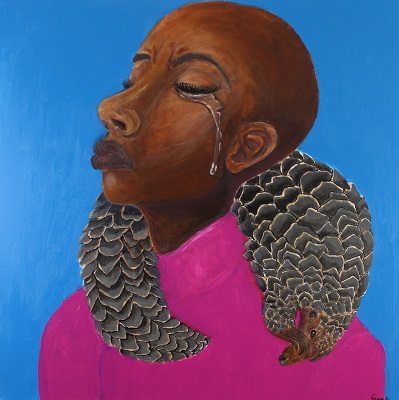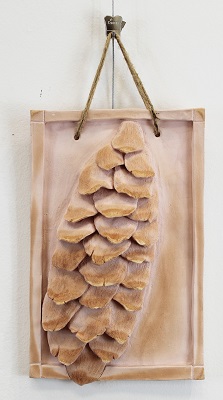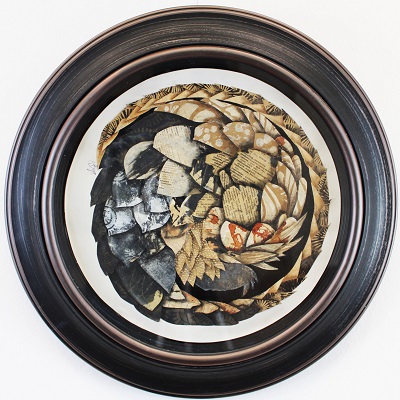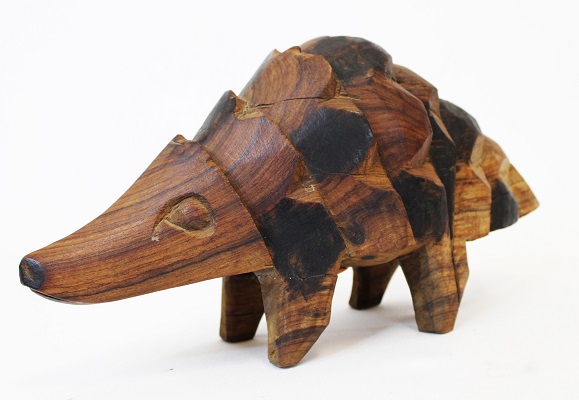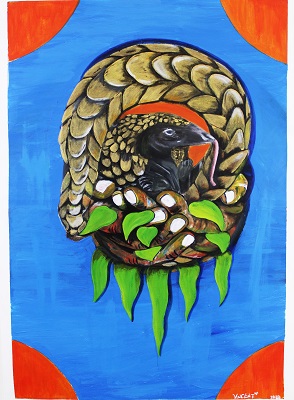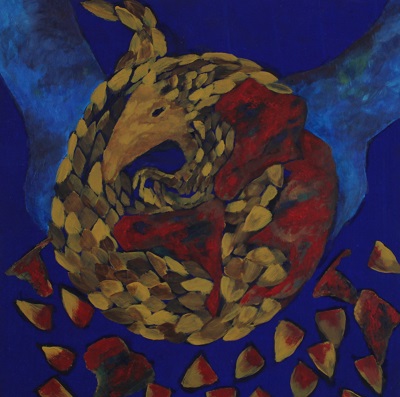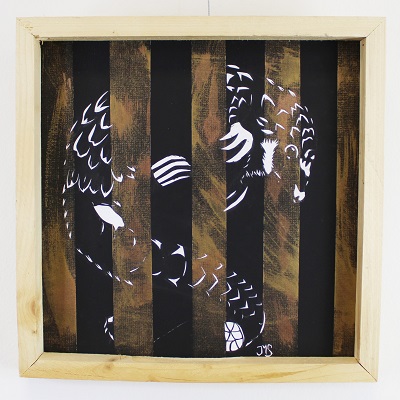
Let every scale count
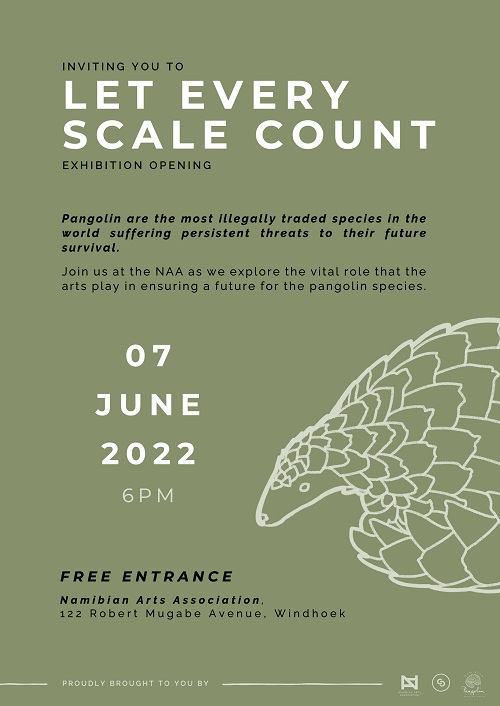
The opening board of the exhibition stated:
Pangolin, the most illegally traded mammal in the world, are on the brink of extinction in the wild.
The vast majority of international seizures concerning pangolins comprises of their scales, a keratinous covering of the upper body and limbs.
Of the eight species in the world (four in Africa and four in Asia), the vast majority are consumed in Asia but poached from Africa.
All eight species are listed in Appendix I of CITES, which means that all international trade is strictly prohibited.
23.5 tonnes of pangolins and their parts were trafficked in 2021 alone.
159 different smuggling routes were used by pangolin traffickers between 2010 and 2015.
China and Vietnam are the two primary consumer markets for pangolins. To create a secure future for pangolin on our planet, an interdependence of social and ecological systems is required. This is best addressed by means of an examination of the sciences and the arts. As an enquiry, both science and art are synergistically complementary. While science develops data, art attempts to capture an essence of the world around us in inspiring ways.
To bridge our multi-cultural and inter-generational knowledge, existing problems require flexible, creative and collaborative strategies.
The visual arts are used in this exhibition to increase the effectiveness of communication, not only for our single pangolin species but for all biodiversity. An ongoing examination between the arts and the sciences will foster creative reasoning, cross-fertilisation of concepts, and intellectual creativity.
Some examples of the artwork displayed:


